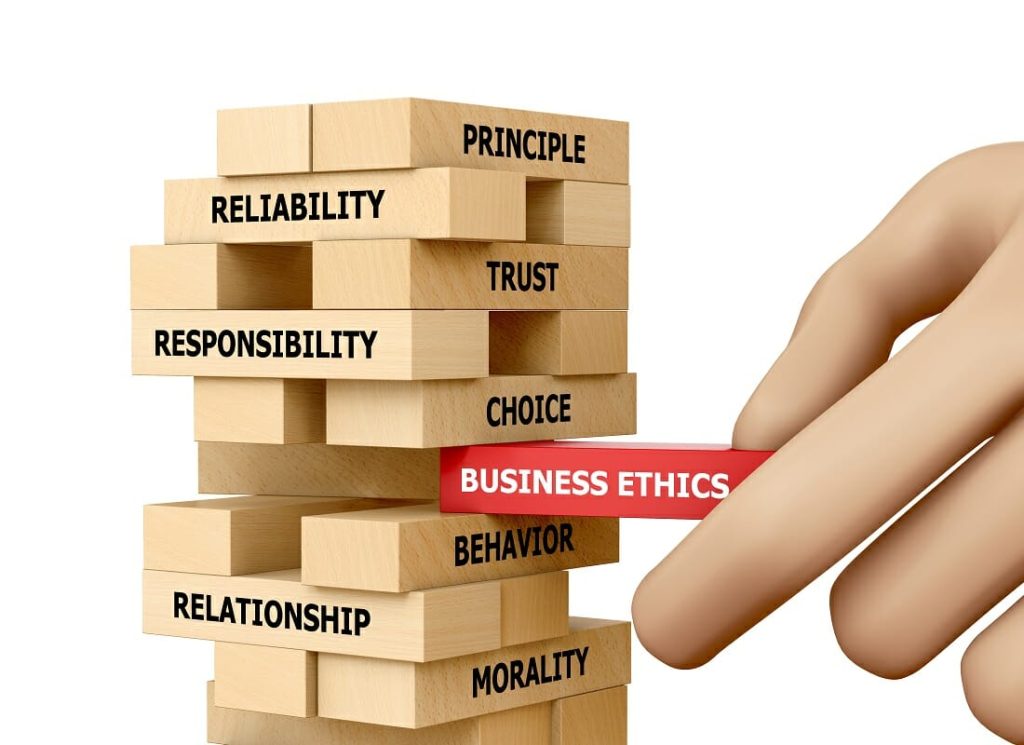Business ethics is the study of proper business policies and practices regarding potentially controversial issues, such as corporate governance, insider trading, bribery, discrimination, corporate social responsibility and fiduciary responsibilities. Law often guides business ethics, while other times business ethics provide a basic framework that businesses may choose to follow to gain public acceptance.

BREAKING DOWN ‘Business Ethics’
Business ethics ensure that a certain required level of trust exists between consumers and various forms of market participants with businesses. For example, a portfolio manager must give the same consideration to the portfolios of family members and small individual investors. Such practices ensure that the public receives fair treatment.
The concept of business ethics arose in the 1960s as companies became more aware of a rising consumer-based society that showed concerns regarding the environment, social causes and corporate responsibility. Business ethics goes beyond just a moral code of right and wrong; it attempts to reconcile what companies must do legally versus maintaining a competitive advantage over other businesses. Firms display business ethics in several ways.
Case Studies
In the case of a company that sells cereals with all-natural ingredients, the marketing department must temper enthusiasm for the product versus the laws the govern labelling practices. Some competitors’ advertisements tout high-fiber cereals that have the potential to reduce the risk of some types of cancer. The cereal company in question wants to gain more market share, but the marketing department cannot make dubious health claims on cereal boxes, or it risks facing litigation and fines. Even though competitors, who have a larger market share of the cereal industry, use shady labeling practices, that doesn’t mean every manufacturer should engage in unethical behavior.
Another case study involves quality control for a company that manufactures electronic components for computer servers. These components must ship on time, or the parts manufacturer risks losing a lucrative contract. The quality control department discovers a possible defect, and every component in one shipment faces checks. Unfortunately, the checks may take too long, and the window for on-time shipping could pass, and that, in turn, delays the customer’s product release. The quality control department has the option of shipping the parts, hoping that not all of them are defective, or the company can delay the shipment and test everything. If the parts are defective, the company that buys the components might face a firestorm of consumer backlash, which may lead to the customer to seek another, more reliable supplier.
Statistics
The National Business Ethics Survey comes out every two years. In the 2013 edition, respondents saw an all-time low in unethical behavior. Around 41% of employees saw misconduct on the job, compared to 45% in 2011. The survey concluded that possibly an uncertain economic climate led to less risk-taking in for-profit businesses leading more managers and executives to act more ethically. The survey found that 60% of misconduct on the job occurred among managers, and 25% of employees blamed senior-level managers for unethical behavior.


